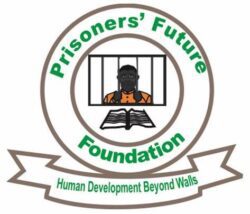

In Zambia, 60% of all reported crime is related to financial gain (Zambia Police Service, 2019). Most of the 24,000 inmates held in Zambian correctional facilities come from the most marginalised and disadvantaged sectors of society, often with reduced formal education opportunities, low literacy and numeracy levels resulting in fewer legitimate opportunities for income generation (World Prison Brief, 2022).
One of the proven methods to reduce reoffending is through holistic projects such as this Skills Training and Empowerment Project for Inmates (STEP-IN). Not only will this project address the skill attainment of prisoners, but it will also focus on rehabilitation, family reunification, and assistive housing upon release.
The STEP-IN project will support inmates as they rehabilitate themselves into productive members of the community. Reducing the chances of reoffending, lowering the burden on the overcrowded prison system, and most importantly offering young men a brighter and more prosperous future.
Prisoners’ Future Foundation (PFF) is a non-governmental organisation formed to advocate for the welfare of current and former inmates, and citizens who come in conflict with the law.
 PFF is run by individuals with lived experience of the Zambian prison system – they are uniquely placed to assess the needs to the prison population. In 2009, PFF was the first organisation to drive the registration of prisons as vocational training providers, culminating in Mukobeko Maximum Security in Kabwe being authorised by TEVTA as a trade training centre. In 2011, PFF was one of the first organisations to lobby the Ministry of Education to operationalise vocational training opportunities in Zambia prisons.
PFF is run by individuals with lived experience of the Zambian prison system – they are uniquely placed to assess the needs to the prison population. In 2009, PFF was the first organisation to drive the registration of prisons as vocational training providers, culminating in Mukobeko Maximum Security in Kabwe being authorised by TEVTA as a trade training centre. In 2011, PFF was one of the first organisations to lobby the Ministry of Education to operationalise vocational training opportunities in Zambia prisons.
The ministry then concluded that vocational training served to empower inmates during their incarceration. They also stated that accruing qualifications provided more inmates with a pathway into employment post release. Past projects showed a drastic impact on reoffending levels; reducing reoffending rates to just 6.4% across from 27% after their project finished in 2021.
The STEP-IN project is a 12- month programme providing technical training, business development training, sexual and reproductive health rights training and delivering a robust package of rehabilitation for the ex-offenders.
High quality vocational training to TEVETA Level 3 be delivered inside the Mumbwa prison to 50 participants. 10 participants in Agriculture, Bricklaying, Carpentry, Plumbing, and Tailoring.
During the 6-months within Mumbwa prison 10 correctional officers will be invited to undertake Training of Trainers (ToT) sessions in business development activities delivered by PFF staff, this will empower the prison staff to deliver training outside of this project or when it has ended. The second half of the project will take place at the PFF training center and will focus on dedicated business development refining learned vocational skills. This training will include market analysis and business planning and how to set up and run a business.
Our sessions will teach up-to-date facts, dispel myths, and provide a welcoming environment for participants to discuss their experiences. The project will track the knowledge, attitudes, and practices of the participants relating to sexual health topics during the project life cycle.
Tools for Self Reliance will provide tools for the training in the prison and at the centre. The final stage is to equip the project graduates with high quality refurbished tool kits for the trade learned. TFSR will supply solo tool kits to all graduates so that all graduates have the soft skills, business skills, trade skills, and equipment to begin their new lives.
Arrest and incarceration hold a great deal of stigma for the individual but also the family of the imprisoned persons. This often leads to inmates drifting away from their families and support groups. This project will provide a halfway house for released inmates on the project. This allows released inmates to have their own space, focus on their training without the worry of housing, and allows them time to build their lives back up before reconnecting with family.
STEP-IN participants will interact with the local Mumbwa community offering their learned skills for free to benefit the hosting community. By fixing schools desks, school buildings, general maintenance tasks, and producing school uniforms for local vulnerable families, project participants will give back to their hosting community, breaking down pre-conceived ideas around ex-inmates, and displaying the skills they have learned.
Projects such as these would not be possible without you. If you would like to support our life-changing projects, please click here to give a one-off gift or set up a regular donation. Thank you.
June 2024